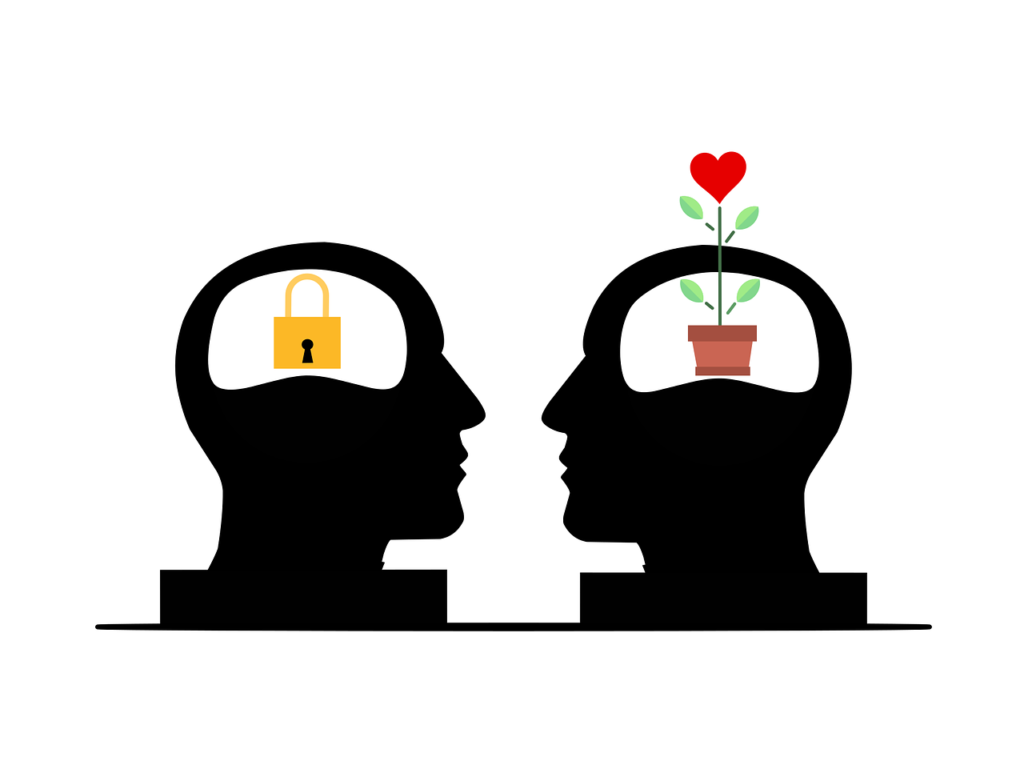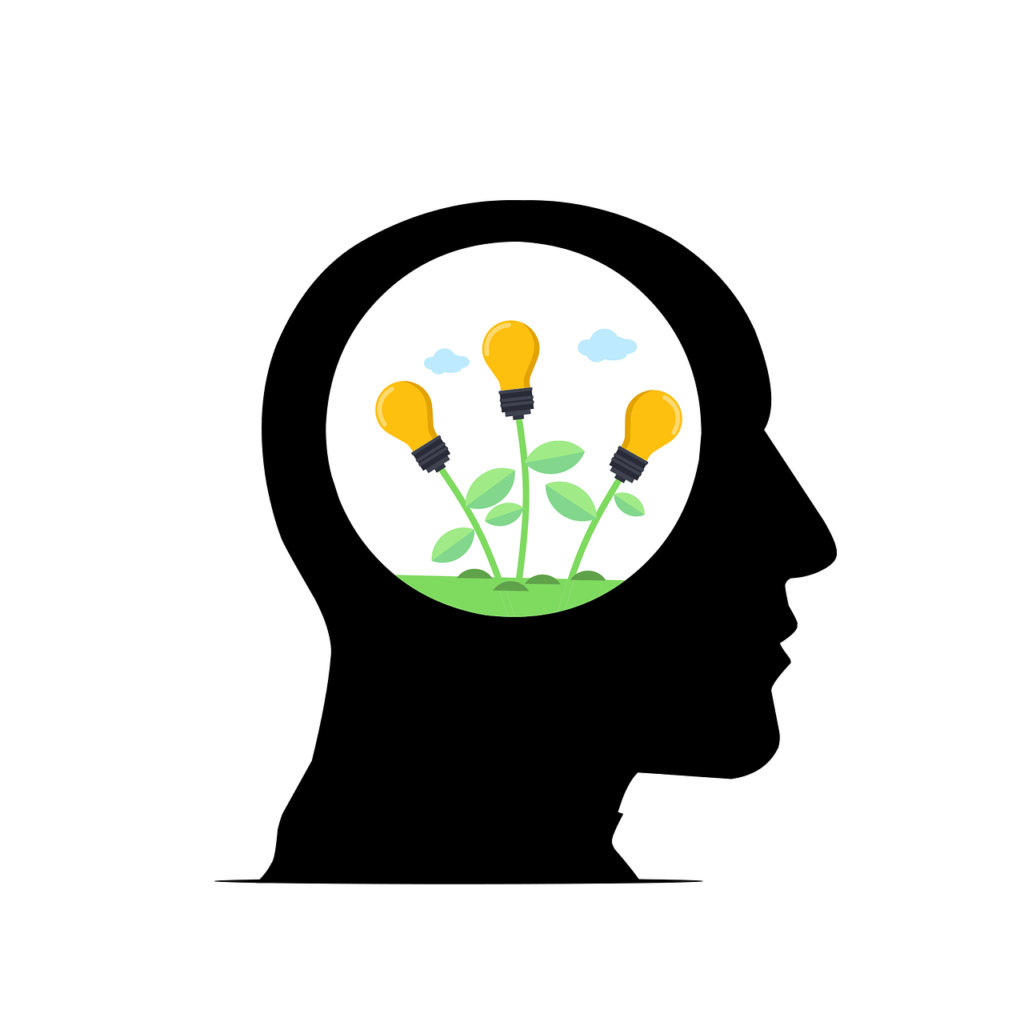Introduction
If you’re looking to become a better person, you’re not alone. Personal growth and self-improvement are important goals for many people, as they strive to live more fulfilling lives and make a positive impact on the world around them. In this post, we’ll explore various ways to enhance your personal growth and development, with a focus on answering the question of “how to be a better person.” We’ll cover a range of topics, including improving yourself, improving your relationships with others, finding happiness and joy, and building self-esteem and confidence. Whether you’re just starting your journey of self-improvement or looking to take your personal growth to the next level, this post will offer practical insights and actionable tips to help you achieve your goals. So, let’s dive in and explore how you can become the best version of yourself.
In this post, we’ll address some of the key questions related to personal growth and self-improvement, such as:
- How to be a better person
- How can I improve myself to be a better person?
- How can I be a better person to someone?
- What are the five ways to become a better person?
- What are the steps to a better life?
- How do I work on myself?
- How do you mentally work on yourself?
- How do I love myself?
- How can I work on myself and be happy?
- How to boost your self-esteem?
- How do I find joy in life?
- What to do when you aren’t happy with yourself?
- How can you tell if someone is unhappy?
- Why is it so hard for me to be happy with myself?
- How can I be happy and confident within myself?
By exploring these questions and topics, we hope to provide you with a comprehensive guide to personal growth and self-improvement, and help you become a better person in all aspects of your life.
Harnessing the Power of Autosuggestion
Autosuggestion: Overcoming Negative Thoughts and Cultivating a Positive Mindset and Learn How to be a Better Person

One of the most powerful tools for personal growth and self-improvement is the concept of autosuggestion. Autosuggestion is a technique used to reprogram your subconscious mind by using positive affirmations and visualization to replace negative thought patterns with positive ones. By consistently repeating positive affirmations to yourself, you can train your mind to believe in your abilities and cultivate a more positive mindset.
To become a better person, it’s essential to work on improving your mindset and attitude towards yourself and others. Autosuggestion can be a valuable tool in this process, as it can help you overcome negative self-talk and limiting beliefs that may be holding you back. By using positive affirmations such as “I am capable,” “I am worthy,” and “I am deserving of love and respect,” you can shift your focus towards your strengths and potential.
To harness the power of autosuggestion, it’s important to be consistent in your practice. Set aside a few minutes each day to repeat your affirmations and visualize yourself achieving your goals. Over time, you’ll start to notice a shift in your mindset and behavior, as you become more confident, motivated, and empowered.
Some tips for practicing autosuggestion include writing down your affirmations and repeating them out loud or silently to yourself, using visualization to imagine yourself achieving your goals, and focusing on positive emotions such as gratitude, joy, and love.
In summary, harnessing the power of autosuggestion is an effective way to become a better person and cultivate a more positive mindset. By consistently repeating positive affirmations and visualizing your success, you can overcome negative thought patterns and achieve your goals. Incorporating autosuggestion into your daily routine is a simple but powerful step towards personal growth and self-improvement.
You can check this blog post: Harnessing the Power of Visualization: Insights from Think and Grow Rich to understand how to use the concepts from the book to learn how to be a better person.
Setting Clear Goals and Visualizing Success: The Power of “Think and Grow Rich”

The concept of autosuggestion has been used by successful people throughout history to cultivate a positive mindset and achieve their goals. One of the key components of this technique is setting clear goals and visualizing success. According to Napoleon Hill in his book “Think and Grow Rich,” successful people visualize themselves achieving their goals with such clarity that it becomes a reality in their minds.
Setting clear goals is the first step in harnessing the power of autosuggestion. It’s important to identify what you want to achieve and why you want to achieve it. This helps to create a sense of purpose and motivation. Once you’ve identified your goals, it’s essential to visualize yourself achieving them. Visualization is the process of creating a mental image of your desired outcome. This technique can help you to stay focused and motivated, and it can also help to overcome any negative thought patterns that may be holding you back.
To be a better person, it’s important to apply the power of autosuggestion to personal growth and self-improvement. This involves setting clear goals and visualizing success in areas such as improving relationships, developing new skills, or overcoming personal challenges. By harnessing the power of autosuggestion, you can cultivate a positive mindset and achieve your goals.
If you are serious on how to be a better person we strongly recommend that you read this Think and Grow Rich book review: “Financial Book Review: Think and Grow Rich by Napoleon Hill – Book Summary”
Using Autosuggestion to Improve Thoughts and Behavior: Tips and Exercises

To use autosuggestion effectively to improve your thoughts and behavior and become a better person, try the following tips and exercises:
- Identify your negative thought patterns: Start by paying attention to your inner dialogue and identifying negative thoughts that tend to arise. Once you have identified them, consciously replace them with positive affirmations.
- Create positive affirmations: Write down positive affirmations that counter your negative thoughts and repeat them to yourself daily. For example, if you struggle with self-doubt, you could say to yourself, “I am capable and confident in my abilities.”
- Visualize your success: Use visualization techniques to imagine yourself achieving your goals and succeeding in your endeavors. This can help you stay motivated and focused on your aspirations.
- Use positive language: Instead of using negative language such as “I can’t” or “I won’t,” use positive language such as “I can” or “I will.” This can help you shift your mindset to a more positive one.
- Practice gratitude: Regularly expressing gratitude for the good things in your life can help shift your focus away from negativity and help you feel more positive and content.
By practicing these tips and exercises consistently, you can use autosuggestion to improve your thoughts and behavior and become a better person.
This article “Developing a Success-Oriented Mindset: Insights from Think and Grow Rich” will open your eyes on more tips on how to be a better person.
How to be a Better Person by Developing Atomic Habits
Atomic Habits: The Power of Small, Incremental Changes

Atomic habits are small, daily habits that can lead to significant improvements over time. The concept was popularized by James Clear in his book “Atomic Habits,” which emphasizes the importance of making small changes that can add up to big results. By focusing on the small things you do every day, you can gradually change your behavior and create lasting change.
To become a better person, it is important to focus on creating positive habits that align with your values and goals. Here are some tips for developing atomic habits:
- Start small: Choose one small habit that you can do every day, such as reading for 10 minutes or doing a quick workout. Make sure the habit is easy to do and fits into your daily routine.
- Make it specific: Be specific about what you want to achieve and how you will do it. For example, instead of saying “I want to exercise more,” say “I will do a 10-minute workout every morning before work.”
- Track your progress: Keep track of your progress by using a habit tracker or a journal. This will help you stay accountable and motivated.
- Be consistent: Consistency is key when it comes to building habits. Make sure you do your habit every day, even if it’s just for a few minutes.
- Celebrate your successes: When you achieve a goal or reach a milestone, take the time to celebrate your success. This will help keep you motivated and focused on your goals.
By developing atomic habits, you can make small changes that will help you become a better person and live a more fulfilling life. Remember to focus on the process, not just the outcome, and be patient with yourself as you work towards your goals. You can use this guide The Four-Step Process for Creating Good Habits: An Infographic Overview to develop good habits in your journey of how to be a better person.
Developing Atomic Habits Aligned with Your Goals: Insights from “Atomic Habits” by James Clear

In his book “Atomic Habits,” James Clear presents the idea that small, consistent changes in our daily habits can lead to significant improvements over time. This philosophy can be applied to any area of life, including personal growth and development. Here are some practical examples of how to identify and develop atomic habits that align with your goals:
- Identify your desired outcome: To be a better person, you need to first define what that means to you. Is it being more compassionate, honest, or productive? Once you have a clear picture of your desired outcome, you can work on developing habits that support those values.
- Break down your goals into small steps: Rather than trying to make a big change all at once, focus on making small, incremental changes that are easier to achieve. For example, if you want to be more compassionate, start by doing one kind act per day, such as holding the door open for someone or complimenting a coworker.
- Use positive reinforcement: Celebrate your successes, no matter how small they may seem. This will help reinforce the habit and make it easier to stick with over time.
- Create an environment that supports your habits: Make it easy to stick with your habits by setting up your environment in a way that supports your goals. For example, if you want to read more, keep a book on your nightstand or in your bag so you always have it handy.
- Track your progress: Keep track of your daily habits and track your progress over time. This can help you identify areas where you’re doing well and areas where you may need to improve.
By developing atomic habits that align with your goals, you can make small, consistent changes that will lead to significant improvements over time. Whether you want to be more compassionate, productive, or honest, the key is to start small and stay consistent. By doing so, you’ll be well on your way to becoming a better person. At book butter, we have developed a comprehensive guide, completely free, that help you develop good habits that stick by using principle from best selling books. You get your free copy from here.
Overcoming Obstacles and Sticking with New Habits: Tips and Strategies

To overcome common obstacles and stick with new habits, it’s important to first identify the obstacles that may arise. One common obstacle is lack of motivation, so it’s important to remind yourself why you started the new habit in the first place and how it aligns with your long-term goals. Another obstacle is lack of time, so finding ways to integrate the habit into your daily routine or setting aside dedicated time for it can be helpful.
It’s also important to start small and build gradually. Trying to make too many changes at once can be overwhelming and unsustainable. Instead, focus on one habit at a time and make it a part of your daily routine before moving on to another.
Another tip is to hold yourself accountable. This can be done by tracking your progress, sharing your goals with someone else, or setting up a reward system for when you reach milestones.
Finally, be kind to yourself and don’t give up if you slip up or miss a day. Remember that habits take time to form and even small progress is still progress. Celebrate your successes and use any setbacks as learning opportunities for how to improve your approach. You can check the atomic habits official site for more tips and tricks.
Delegating Skills You Don’t Master
How to be a Better Person by Focusing on Strengths: Delegating Tasks You Don’t Excel At

Delegating tasks you don’t excel at can help you focus on your strengths, and ultimately lead to better results. In their book “Who Not How,” Dan Sullivan and Dr. Benjamin Hardy argue that instead of asking “how” to accomplish a task, you should focus on “who” can help you achieve it.
To be a better person, it’s important to recognize your strengths and weaknesses. By delegating tasks you’re not proficient at, you free up time and energy to focus on areas where you excel. This can lead to increased productivity, improved quality of work, and better overall outcomes.
Delegating can also help you build a better team or support network. By recognizing the strengths of others and delegating tasks accordingly, you can create a more effective and efficient team. This can also foster a sense of collaboration and trust among team members.
To delegate effectively, you should first identify the tasks you don’t excel at and determine who in your network has the necessary skills and experience to help. It’s important to communicate clearly and provide clear instructions, while also giving the person you’re delegating to the autonomy to complete the task in their own way.
It’s also important to recognize that delegating doesn’t mean completely handing off a task and never thinking about it again. Instead, it’s important to maintain open communication with the person you’re delegating to and provide support and guidance as needed.
Overall, delegating tasks you don’t excel at can help you focus on your strengths, build a better team, and ultimately achieve better outcomes.
Identifying Core Strengths and Deciding Which Tasks to Delegate

Identifying your core strengths can be a challenging task, but it is essential for delegating tasks that don’t align with your skills. Here are some tips for identifying your core strengths and determining which tasks to delegate:
- Take a skills assessment: There are various skills assessment tools available online that can help you identify your strengths and weaknesses. These tests can provide valuable insights into your skills and abilities, making it easier to delegate tasks that don’t align with your strengths.
- Analyze your past successes: Consider your past achievements and the skills that helped you reach those accomplishments. Analyzing your past successes can help you identify your core strengths and what tasks you excel at.
- Ask for feedback: Ask friends, family, and colleagues for honest feedback on your skills and strengths. They may notice strengths and talents that you haven’t recognized in yourself.
- Prioritize tasks: Determine which tasks require your specific skills and knowledge, and which can be delegated to others. Prioritizing tasks in this way can help you identify which tasks you can delegate to others.
- Embrace delegation: Delegating tasks can be challenging, but it is crucial to recognize that it is impossible to excel at everything. Embrace delegation as a way to focus on your strengths and improve your productivity and overall performance.
By identifying your core strengths and delegating tasks that don’t align with them, you can free up more time to focus on what you do best. This approach can ultimately lead to greater success and fulfillment in your personal and professional life.
Finding the Right People to Delegate to: Effective Communication of Expectations and Goals

Finding the right people to delegate to is essential for success. Here are some tips to help you find the right people to delegate to and communicate your expectations effectively:
- Identify your goals and priorities: Before you start delegating tasks, you need to identify your goals and priorities. Determine what tasks are essential for achieving your goals and what tasks can be delegated to others.
- Assess the skills and strengths of your team: Once you have identified your goals and priorities, assess the skills and strengths of your team. Look for team members who have the skills and expertise needed to accomplish the tasks you want to delegate.
- Communicate clearly: Effective communication is essential for successful delegation. Clearly communicate your expectations, goals, and deadlines to the team members you delegate to. Ensure that they understand what is expected of them and how their work contributes to the overall success of the project.
- Provide support and feedback: Provide your team members with the support and resources they need to complete their tasks effectively. Give feedback on their work, and provide them with constructive criticism that will help them improve their performance.
- Build trust: Delegation requires trust. Build trust with your team members by being transparent and open about your expectations, goals, and priorities. Show appreciation for their work and acknowledge their contributions.
By following these tips, you can find the right people to delegate to and effectively communicate your expectations and goals. This can help you focus on your core strengths and achieve your goals more efficiently, ultimately helping you become a better person. You can check this short YouTube video about how to use the concepts form the book Who Not How to learn how to be a better person.
Conclusion
In conclusion, developing positive habits, delegating effectively, and cultivating a growth mindset are key to personal development and self-improvement. To be a better person, it’s important to identify areas for improvement and take action to work on them. This can involve setting specific goals, establishing positive habits, and delegating tasks that aren’t your strengths. When delegating, it’s crucial to find the right people to work with and effectively communicate your expectations and goals. Ultimately, by adopting a growth mindset and focusing on continuous improvement, you can make progress towards becoming the best version of yourself and living a fulfilling life. Remember, personal development is a lifelong journey, and it’s never too late to start working on yourself and cultivating positive habits for a happier and more fulfilling life.
If you’re striving for personal growth, this blog post can offer you tips on how to be a better person: Insights from Best-Selling Books: How to Be a Better Person.




Pingback: 10 Habits for a Successful Morning Routine to Boost Your Personal and Financial Development - Book Butter